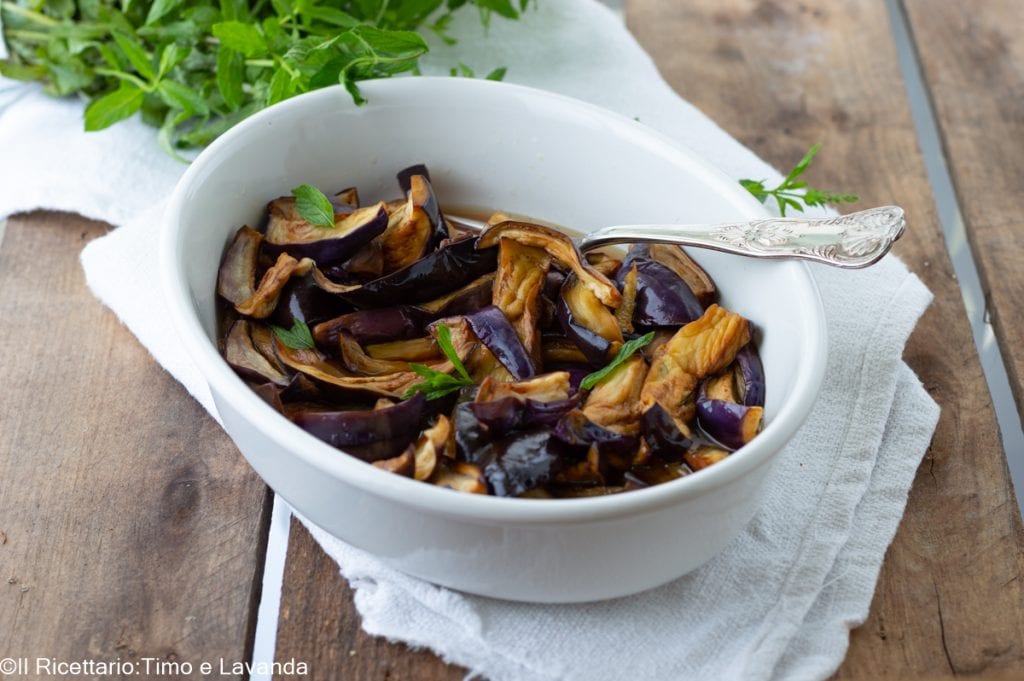The eggplants in carpione are a typically summer dish; fried and then marinated in a solution of vinegar and onions, they are perfect to serve as a side dish for grilled meats or as an appetizer. Similarly, fish and meats can be prepared this way.

- Difficulty: Very easy
- Cost: Very cheap
- Rest time: 2 Hours
- Preparation time: 15 Minutes
- Portions: 4
- Cooking methods: Frying
- Cuisine: Italian
Ingredients
- 6 eggplants
- 1 l peanut oil
- 1 white onion
- 1 sprig mint
- 200 ml white wine vinegar
- to taste salt
- 4 tablespoons extra virgin olive oil
Procedure
Eggplants in Carpione
Wash the eggplants well and dry them with kitchen paper.
Cut the eggplants in half and then into strips of 1-1.5 inches.
Place the eggplants in a colander and add salt.
Mix them well and let them rest for a couple of hours.
Rinse the eggplants under running water and dry them well with a cloth.
Heat the oil in a large pan.
Fry the eggplants a few at a time until they are golden.
Drain on absorbent paper.
Proceed in the same way until finished.
Place the fried eggplants in a wide container.
Peel the onion and slice it thinly.
Heat the extra virgin olive oil with the garlic, onion, and some mint leaves.
Sauté over low heat and when the onion is wilted, add the vinegar.
Let the alcohol evaporate for a couple of minutes, add a pinch of salt, and pour it hot over the eggplants.
Let the eggplants rest for at least a couple of hours before serving; they taste even better if consumed the next day.
RECIPES WITH EGGPLANTS
Carpione
It is a typical preparation of Piedmontese cuisine. It has very ancient origins as it was used for preserving foods before the advent of the refrigerator, especially in the summer. Furthermore, the marinade was also used to cover the “muddy” taste of some foods like carp, from which it takes its name, and tench.
It is a typical preparation of Piedmontese cuisine. It has very ancient origins as it was used for preserving foods before the advent of the refrigerator, especially in the summer. Furthermore, the marinade was also used to cover the “muddy” taste of some foods like carp, from which it takes its name, and tench.

